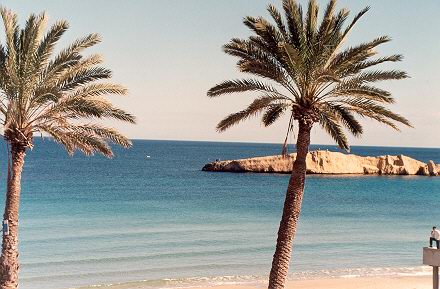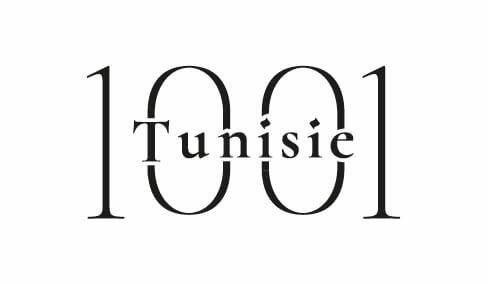
An association for a smarter Tunisian tourism was born from the study tour. It is inspired by the German rigor and carries the hope of a new generation of Tunisian tourism operators.
Report.
Issam El Messabi graduated from the Institute of Advanced Studies of Glion. Son of a hotelier of Djerba, he is among the dozens of hotel managers who go abroad in Morocco in recent years. Back in Tunisia, he is one of the best placed to measure the mess that has been made to “his island” . This latter has long suffered from lack of water, poor management of waste, uncontrolled construction … Problems to add to the age-old lack of tourist roducts, lack of entertainment and a poor image of the destination as a whole, which intensified since 14 January 2011.
Issam can not help but to think back of Morocco: “Compared to Marrakech, the Tunisia destination is like a dormitory office. We leave to Paris, London and Marrakech in the same places and the same prices. The country is working and tourism is the head of the car that pulls the rest of the economy. How long is it since you’ve last been to Morocco? Remember poverty 80s … The slums disappear, the average salary increases and investments are maddening! We know what it takes to reinvent our destination, so get to work! ”
If Issam El Messabi is one of those who are engaged with the Tunisian Federation of Hotels (FTH), others like Ben Farhat Tanfous graduating of the National German Engineering School and developer of a Residential Hotel Charm Djerba www.toumana-djerba.com, has even tried the municipal life. Enterprising and full of ideas, he tried to innovate his city and region as much as for his company by creating, among other things, a new concept and animating sometimes a gourmet week around the country cooking or a Christmas market which was a resounding success on the island.
Two young people, two courses but certainly the same ambitions; see the Tunisia destination reborn from the ashes, become attractive, cost-effective and innovative. But is it a coincidence that the composition of the delegation of this trip in Germany is made of young professionals who not only criticized the situation of virtual bankruptcy of Tunisian tourism but carry a certain vision and have already begun some laudable actions?
These two young men- are they isolated cases? Far from there ! They are the inheritors of family businesses that are upgrading, or they are in the top management of international channels operating in Tunisia, they are committed and want to fight for Tunisian tourism resume stripes.
Sami Ounalli, Marketing and Sales Director at the Radisson chain wants to see the most diversified tourism, integrated, inclusive and equitable, “In our hostels, we have all the possible certifications and it works! It remains true that if tourism is better developed, better thought out and more integrated, it would revolutionize the regions, bring prosperity, reabsorb unemployment and bring social peace we greatly need. “. On the side of the capital, Mehdi Fourati, hotel “Ambassadors” manager has won an ecolabel of which he is very proud. Resource management is at the heart of its daily requirement and the approach that imposes structure pushes towards excellence.
Every man for himself and tourism for all, the time of this question, has it really sounded? The accumulation phase of recent years, the Tunisian tourism and hotel industry, more specifically, are the worst in its history. They need more than ever to think about their present pondering their future. For this, there need to grow the line in terms of visions and strategies.
Time for-all is over and the route of a tourism respectful of the natural and cultural environment, favoring the encounter and exchange, participating ethically to local development is still marginal is imposed.
Although still marginal in the world, solidarity and fair tourism raises real hopes because it helps to make a fairer redistribution of resources. Ecotourism is one of his first steps : How to make tourism less pollution, better water and waste managing without touching the guest’s comfort? How can a tourist project become the engine of the entire region?
Born some thirty years ago, the term ecotourism itself is recent. Defined in the TIES (International Ecotourism Society) in 1991: “Ecotourism is a responsible travel to natural environments where resources and well-being are preserved.”
Ecotourism or Green Tourism is a form of sustainable tourism, more focused on the discovery of nature (ecosystems, but also agricultural systems and rural tourism or urban ecology (ecological gardens, Green areas, urban nature reserves and other topics in the fields of urban ecology …) .A concept that looked specifically at the general region of Germany and Bavaria in particular and successfully.
Receiving the Tunisian delegation to the headquarters of the State Chancellery of Bavaria, Paul Fischer, Director of International Relations declares that: “Nature is an asset for tourism and you have to take care of it. Traditions mixed with modernism and innovation then become a winning bet for the future. The Oktoberfest (beer festival in Munich) is the best proof. This is basically a traditional celebration 150 years old (organized since 1810) that drains nearly 6 million tourists to the region in a week ”
Indeed, the Oktoberfest is held near the center of Munich, on wasteland of 42 hectares. To preserve the family character of the festival, a carnival and eating places are installed around the tents. The event is the biggest fair in the world and always begins with a parade of more than eight thousand people in traditional clothing of the region. The public in large festive tents can drink beer while listening to music. About 6 million liters are drunk each year .Oktoberfest is A flagship event.
Reconstruct parts of the past that’s good. Build new concepts, it’s even better! Establish a project with a strong guideline, stick to it and work hard, that’s the crazy bet that has been made with the establishment of the Nationalpark Bayerischer Wald (www.nationalpark-Bayerischer-wald). A park that has completely transformed a region that was abandoned and forgotten to the borders of the Czech Republic and which led to its launch the anger of people who even burned it because they did not see the point of it. 20 years later, the park is a locomotive for the region. It does not only protect nature and educate about it, but brings more than one million tourists (just for the bridge) who come to the forest to eat there, walk, have fun, watch, play … apart from largely dominant forests, the park houses some bogs and glacial lakes, visible remnants of the last glaciation there are about 8000 years. Fort 1500 km of hiking trails, providing an average of 4 tours of the forest and 10 to 15 per day vists of the bridge, the park is also a great example of Public / Private partnership. A giant bridge which takes the form of an egg to allow visitors to get a view on the Bavarian Forest is well built.
It is simply the longest bridge in the world and the ticket for travel is 8.5 euros (the rest of the park is free). The investment of 3.5 million Euros proved of unprecedented profitability. The park provides living for 11 towns, 1000 tourism establishments for a case of sales of 50 million euros. The


 َAbonnez-vous
َAbonnez-vous

